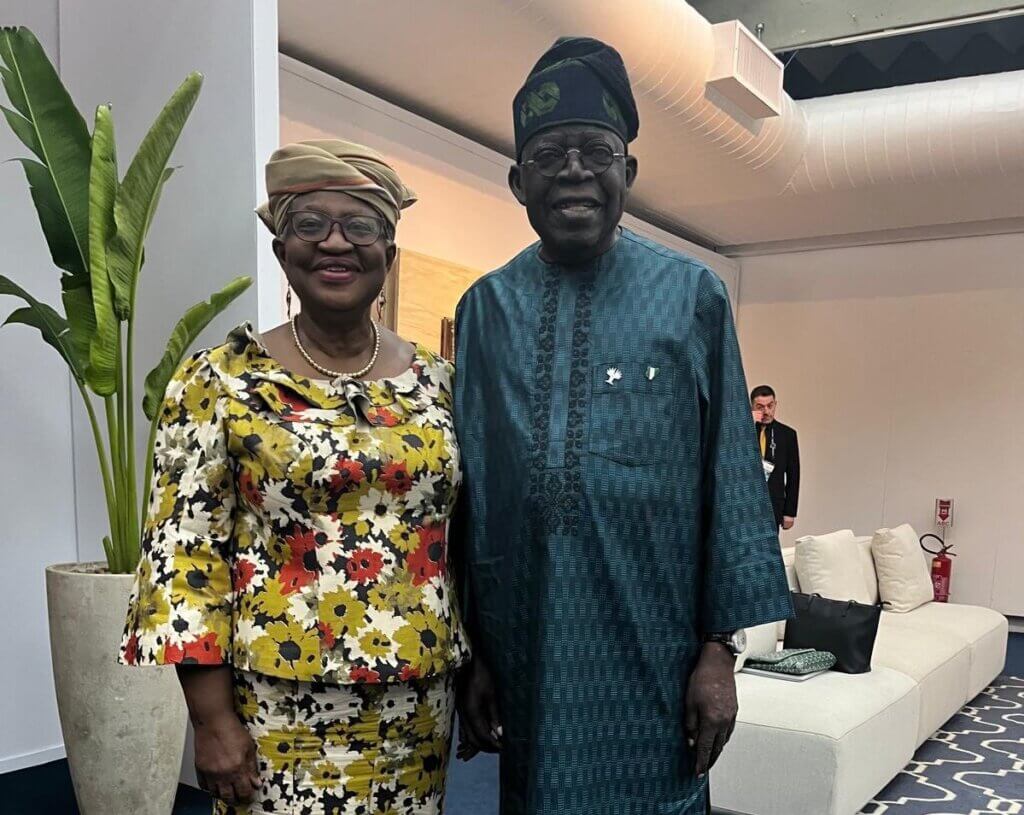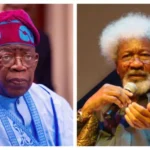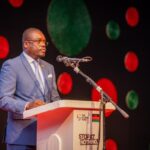Nigerian-Born Director-General of the World Trade Organisation (WTO), Dr. Ngozi Okonjo-Iweala, came calling the other week. She paid a courtesy call on President Bola Tinubu and gave what should have been an austere and severe personal assessment of Nigeria’s economic performance under the Tinubu administration. An otherwise closely-reasoned television interview of Okonjo-Iweala after the Aso Rock Villa visit has sparked considerable interest and enthusiasm.
Many have adjudged the Director-General to have spoken indistinctly or without clear articulation. The truthful analysis or assessment of the performance of the economic reform programme of the government is timidly advised to be avoided like a rattle snake because of the hypersensitivity of government and the hyena-like wildness of its lapdogs respecting the subject matter.
A free-minded discussant is pigeonholed as belonging to or being used by the opposition. An afore-held official prejudice is wont to destroy the chances of a clear reception of his thoroughly-researched or forthright analysis and prescription. The concerted hostility of hired online Turks and of rabid government supporters has proved difficult to overcome. The social media hirelings have been brimming with false confidence in the light of a perceived huge endorsement of the grim reform measures of the government.
Okonjo-Iweala, on her part, has described the Nigerian economy as “stable” even under the challenging circumstances of the weak-kneed operational methodology of its captain. In a mechanistic sense, stability will seem to suggest a situation that is resistant to change. In economics discourse, when an economy is identified as stable, it is meant that the economy has reached a point where it has ceased to experience major or fundamental gridlock.
In the wake of the 1981/82 Shagari-era economic downturn, the Federal government’s Chief Economic Adviser, Professor Emmanuel Edozien, while responding to criticisms regarding the gaping difference between the lived realities of the people and the officially-alleged good performance of the economy, amused a beleaguered nation when he retorted that “the Economy is resilient.” Was that the question asked of him?
A red herring is conjured when a public officer is confronted with difficult questions which require immediate direct answers. A misleading answer intended to divert attention from the real issue is offered nervously.
Dr Okonjo-Iweala may have suffered a nervous dread as she reacted sympathetically to the official plea for public understanding of the government’s reform measures. The government, she explained, has achieved the stability of the economy. But her explanation was a decoy intended to lull the people to sleep. In it, she lured public attention away from the people’s existential problems.
Some ominous rumblings have since ensued. Many commentators have deplored what they think is Mrs Okonjo-Iweala’s lack of commitment to the public cause respecting the alleviation of the pervasive excruciatingly harsh living conditions of the Nigerian people under the hurtful reform programme of President Tinubu’s government. Okonjo-Iweala who is generally considered an interesting personality in public life; who is endearing to one and all as a public officer of marked ability and as a well-trained public finance apparatchik is deemed to have goofed big time in this poor attempt to balance certain niceness of Diplomatic bearing or of the exquisite class with the rough and tumble of politics.
Even as the stability of an economy is proclaimed as not necessarily precluding the hardship and suffering that are attendant to such “stability”, the purpose of that stability remains dubious. In an identified situation where inflation is reported to have fallen from 25 per cent to 12 per cent and prices of goods and services are still sky-high, the advantage of the putative stability is of negative value. One would expect from Okonjo-Iweala’s cold comfort regarding the attainment by the Tinubu administration of a stable economy, a real surge of hope for the people exemplified in a tumbling or affordable price regime with respect, for instance, to basic food items. It may well be that the Director-General chose her use of the word “stable” decidedly or with some deviously diplomatic purpose in mind.
Cost of living is rooftop, to the chagrin of the people. Food, housing, transportation, health care, etc are generally out of reach of the teeming masses even as incomes are abysmally low. We are informed that economic stability does not preclude hardship or that it does not suggest that the socio-economic conditions of the people have improved.
We have been educated that stability can coexist with hardship and privation. Our eggheads have divined that it could take months or even years before stability could successfully grapple with hardship to translate into job creation, higher wages, cheaper goods or some beneficial indices of socio-economic welfare, etc. They even insist that the state of stability must hold long enough even as pain becomes more grim and real. Further, our economic gurus predict the possibility of the stability phase reversing itself midway thereby prolonging the hardship or socially-unambient situation.
Even as the most important singular purpose of government remains the security and welfare of the people otherwise expressed as the greatest good of the greatest number of the people, a stable economic situation as propounded by the Okonjo-Iweala school of economic growth and development will seem to defeat the terms of the people’s social contract. This school hypothesises that a socio-economic welfare milieu can only be preceded by a prerequisite “stable economy” in which suffering, hardship, privation, etc must be endured ad nauseum.
The Tinubu presidency reform measures which Okonjo-Iweala applauded at her visit are no more than the casual, incoherent, unintelligible, one-cap-fits-all propositions that offer no immediate succour and are positioned to delay or postpone the welfare of the ordinary people. The Nigerian educated elite cannot absolve itself from being complicit in all that has bedevilled the country. In fact, it is actively partaking, collaborating or is complacently indifferent to the deterioration of the Nigerian socio-economic and political environment without any passionate opposition and struggle.
The membership of the Nigerian elite class continues to pander to the whims of those in authority and thereby finds it difficult to pronounce truth to power even as the pervading situation requires that government be made conscious to respond to the needs and wishes of the people. Felicitous allusions to matters of grave existential conditions are all that have unfortunately come from otherwise enlightened self-interest.
Perhaps no final word may be said about the duplicity of our eggheads from who so much was expected and upon who so much pathos has been expended. Concrete economic, political and social achievements have been fortuitously wasted on the altar of elite indocility. Our trust, our hope or confidence may have been wrongly placed. Unfortunately, it cannot be doubted that socio-political and economic kinesis can only be engineered or led by elite leadership.
ong ago in 1982, Chief Obafemi Awolowo identified a great impediment to our national growth and development. Ruminated clear-eyed Awo: “… the agglomeration of obtuse, supine and unawakened minds that are responsible for this criminal neglect want to continue – indeed, perpetuate themselves in office.”


























